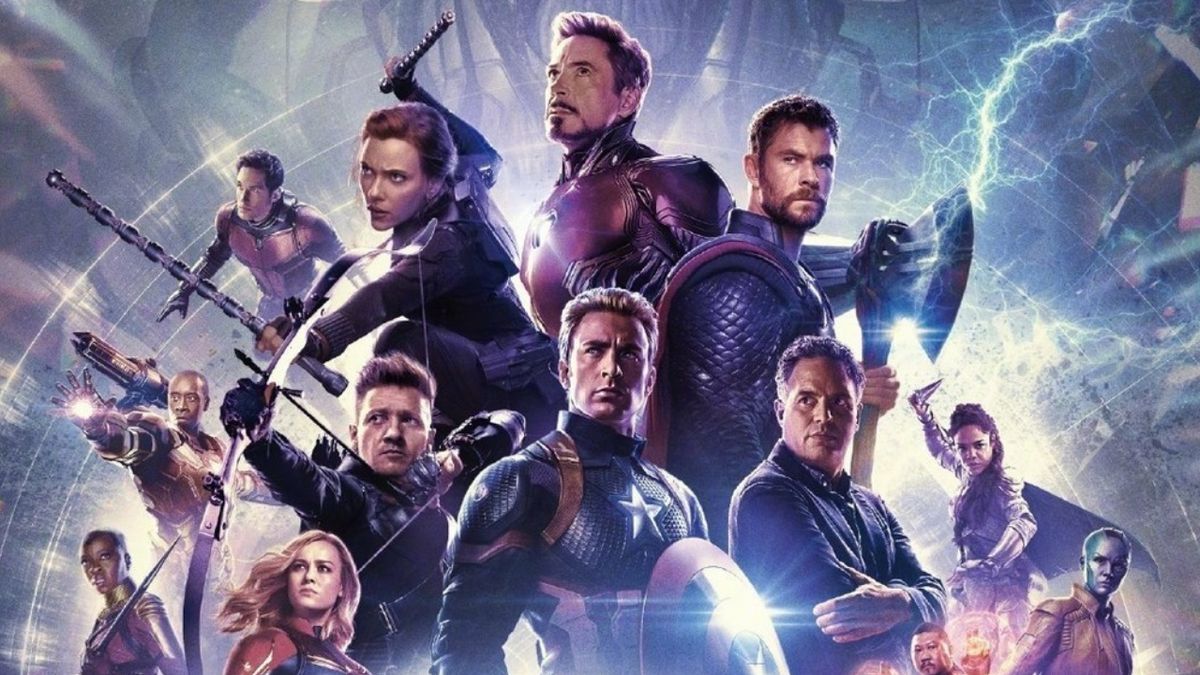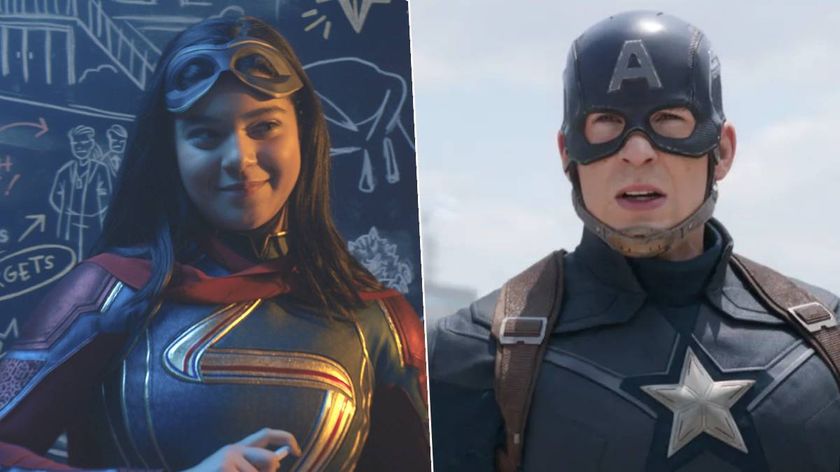Why it’s time to chill out about spoilers
Finding out big reveals before release day is the pits, but not every bit of info about a new movie or TV episode is a spoiler…

There’s an episode of The IT Crowd where Roy does everything he can to watch a hot new zombie movie before someone tells him the ending. Already disappointed to know the existence of a twist, he’s so desperate to see the film unsullied that he chances watching it on a sofa with a cannibal who wants to eat him – and subsequently slaps a policeman in the face when the cop threatens to give the ending away.
When it first aired in 2007, the episode felt too extreme to be real, a ludicrous situation played for laughs – nobody was that spoiler-phobic, right? But in an era of social media, streaming TV, and mega-franchises that must be kept pure at all costs, Roy’s stance not only feels plausible, it seems almost laid back.
Because in 2019 giving away spoilers is a route to instant damnation, a crime liable to see you shunned, abused, and dispatched to the same circle of hell as people who talk in cinemas and wear socks with sandals. Really, though, it’s time we all chilled out a bit about spoilers – especially when they’re not always spoilers at all.
Double standards

I say this as a viewer who loved going into Avengers: Endgame completely in the dark. There was something undeniably magical about sitting down in a cinema and having no idea where the story was going, that almost every twist and turn was unknown territory. In fact, it’s almost impossible to talk about that movie without giving something away, so plentiful are its surprises and emotional shock moments. But that doesn’t mean the same rules can or should apply to every release.
Avengers: Endgame is the final act of a 22-movie story, the culmination of long-running story arcs for numerous characters we knew (in some cases) better than our own families. Enough groundwork had been laid that you already knew everything you needed to know without being handed any extra story specifics in advance. But we’re getting to the point now where anything in a movie or TV episode can be considered a spoiler – if you think a star rating constitutes a spoiler that’s your choice, but you should probably accept it’s your responsibility to relocate to an underground bunker in the desert (or equivalent) to avoid it.
"Talking and speculating about movies and TV shows is part of the fun of being a fan"
In a rational universe, something that happens in the opening scene of a movie surely can’t be a spoiler. Yet, when Blade Runner: 2049 was released in 2017, the opening “revelation” that K is a replicant was protected under the rules of Hollywood omertà, with reviewers asked to avoid mentioning it – even though that piece of information (along with the fact that K is searching for the Replicant child of Harrison Ford’s Rick Deckard) is so fundamental to the plot that pretty much the only other thing you can say about the movie is “looks nice”. Indeed, if you can’t talk about the McGuffin that sets the storytelling in motion, you might as well not talk about the movie at all.
It’s arguably Hollywood itself that has turned the spoiler from annoyance to genuine contraband – ironically it’s not that long ago that blockbuster trailers routinely revealed major last act events (The Avengers and Prometheus were prime offenders). But when powerful filmmakers like J.J. Abrams are talking about “preserving the experience for the viewer”, that becomes the company line. Everyone involved in a project becomes so paranoid about breaking ranks that they end up saying nothing at all. It’s like they’re living on a perpetual wartime footing – loose lips sink starships? – but it’s difficult to imagine even the most clandestine of wartime chats being as short of intel as some star interviews can be.
Sign up to the SFX Newsletter
Get sneak previews, exclusive competitions and details of special events each month!
Movies need (social) media

Indeed, politicians would be proud of the way the Game of Thrones cast managed to avoid giving away anything of substance about the final season. Or how Doctor Who showrunner Chris Chibnall played coy over whether the TARDIS would be in Jodie Whittaker’s first season (spoiler: It was). Despite seeing it explode at the end of the previous series, every Who fan knew it would be back. Confirming its return would have made no difference to anyone’s enjoyment – this was keeping a secret for the sake of keeping a secret.
It’s not just the blandification of interviews that’s a problem. In this despoilered age, pre-release photos become more vanilla and non-descript, for fear of sharing a nugget of information that might give something away, while modern trailers – the recent The Rise of Skywalker teaser being a prime example – contain so little about the movies they’re promoting that they’re effectively just montages of pretty pictures. I have no desire to have Star Wars Episode 9 spoiled, but a little more information wouldn’t hurt anyone.

Speaking of spoilers, why not check out the Spider-Man: Far From Home trailer. Beware, it is full of potential Endgame spoilers.
Because the truth is most movies need the media. Whether it’s more traditional journalists writing features and reviews, or fans posting to Facebook, Twitter or Instagram studios and TV networks want people talking about their product. The condition of that deal is that the onus is on them to give people something worthwhile to get excited about and speculate on.
That’s why Star Trek: Discovery season 2 was such a breath of fresh air at San Diego Comic-Con last year. Having revealed in the season one finale that the USS Enterprise would be back, the panel gave us a proper trailer, as well as confirming that Spock would return and that Captain Christopher Pike would be at the helm of the Discovery. They outlined the basic story of the season, giving fans loads to talk about, but crucially, there were still plenty of secrets left to unfold. Presumably this is also the reason the first Dark Phoenix trailer shows the death of a key character – in a world dominated by the MCU, other superhero franchises have to do everything they can to ensure they’re part of the conversation. (Though I wouldn’t mind betting it happens early enough in the movie that it’s not really a spoiler at all.)
Redefining spoilers

Actual, honest-to-god spoilers are clearly a bad thing, and anyone who tells you the twists at the end of The Sixth Sense, The Usual Suspects or Fight Club deserves a prime spot on your list of enemies. Big character deaths, unexpected twists, surprise cameos, and the rest rightly remain a massive taboo for any fan, and it’s the duty of anybody writing about movies and TV – whether they’re fans or journalists – to ensure that anything containing spoilers is so clearly hidden or flagged that it can’t be read by accident. At the same time, if you want to avoid every single pre-release fact, then the onus is also on you to steer clear of your Twitter feed, or get up at 2am to watch Game of Thrones.
So before we start crucifying people for giving stuff away, let’s make sure they really are spoilers. Because if they’re just telling you they like a movie – or what it’s about – they probably aren’t ruining anything. Talking and speculating about movies and TV shows is part of the fun of being a fan – if nobody can say anything before release, the viewing experience is worse for everyone.
Richard is a freelancer journalist and editor, and was once a physicist. Rich is the former editor of SFX Magazine, but has since gone freelance, writing for websites and publications including 12DOVE, SFX, Total Film, and more. He also co-hosts the podcast, Robby the Robot's Waiting, which is focused on sci-fi and fantasy.
Most Popular







